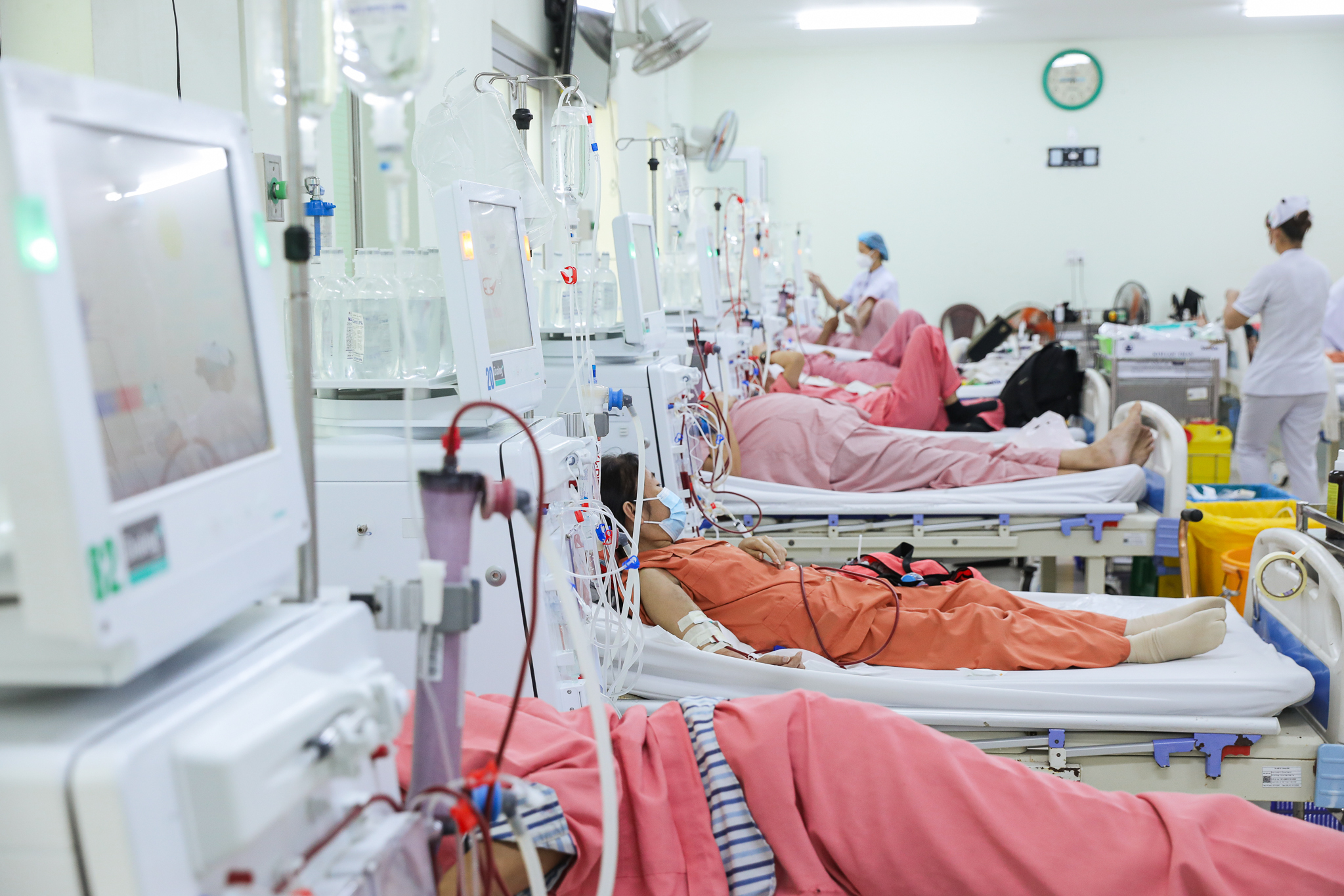Answer:
Chronic kidney disease (kidney failure) is a condition in which kidney function gradually declines and cannot be fully restored. Kidney failure progresses through 5 stages, each reflecting the level of decline in blood filtration function - assessed by the glomerular filtration rate (GFR).
In stage 4, the GFR is 15-29 ml/min/1.73 m2. At this point, kidney function has significantly decreased, and preparation for renal replacement therapy is necessary. Patients need close monitoring to be ready for dialysis or a kidney transplant when needed. Some forms of renal replacement therapy that doctors may recommend are hemodialysis, peritoneal dialysis, or kidney transplant.
In stage 5 (end-stage), the GFR is
Patients with end-stage chronic kidney disease require hemodialysis 3 times a week, or continuous peritoneal dialysis at home. If conditions allow, a kidney transplant should be considered.
Psychological support, nutritional guidance, and management of accompanying complications are also provided during the treatment process. Chronic kidney disease is an irreversible process, but it can be controlled and its progression slowed if detected early and treated properly. Regular monitoring of kidney function, especially in high-risk individuals (those with diabetes, high blood pressure, older adults, or a family history of kidney disease), is key to protecting long-term health.
Regular check-ups are the best way to protect your health, helping to detect dangerous medical conditions early, including chronic kidney disease.
Doctor Ngo Thi Kim Oanh
University of Medicine and Pharmacy Hospital at Ho Chi Minh City - Campus 3
 |
Dialysis patient at Cho Ray Hospital, Ho Chi Minh City, 3/2024. Photo: Phung Tien |
Dialysis patient at Cho Ray Hospital, Ho Chi Minh City, 3/2024. Photo: Phung Tien












